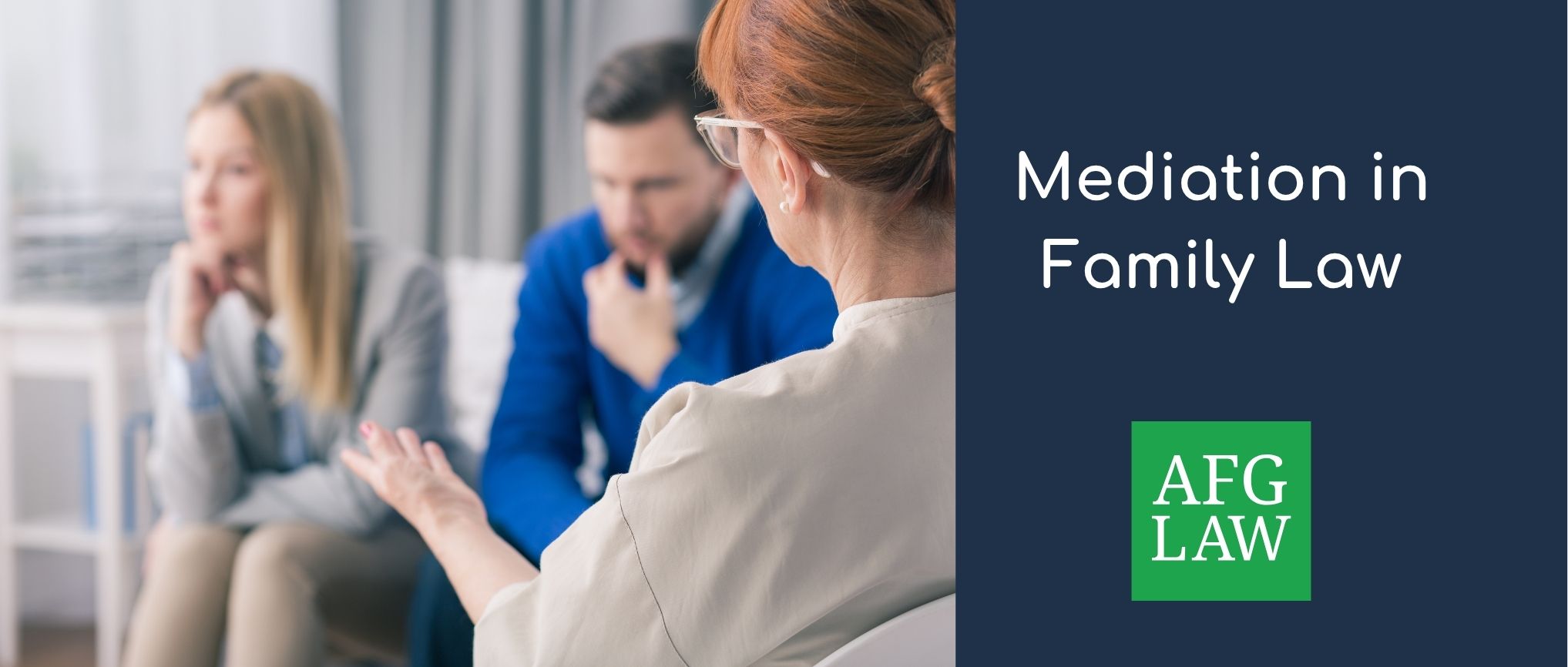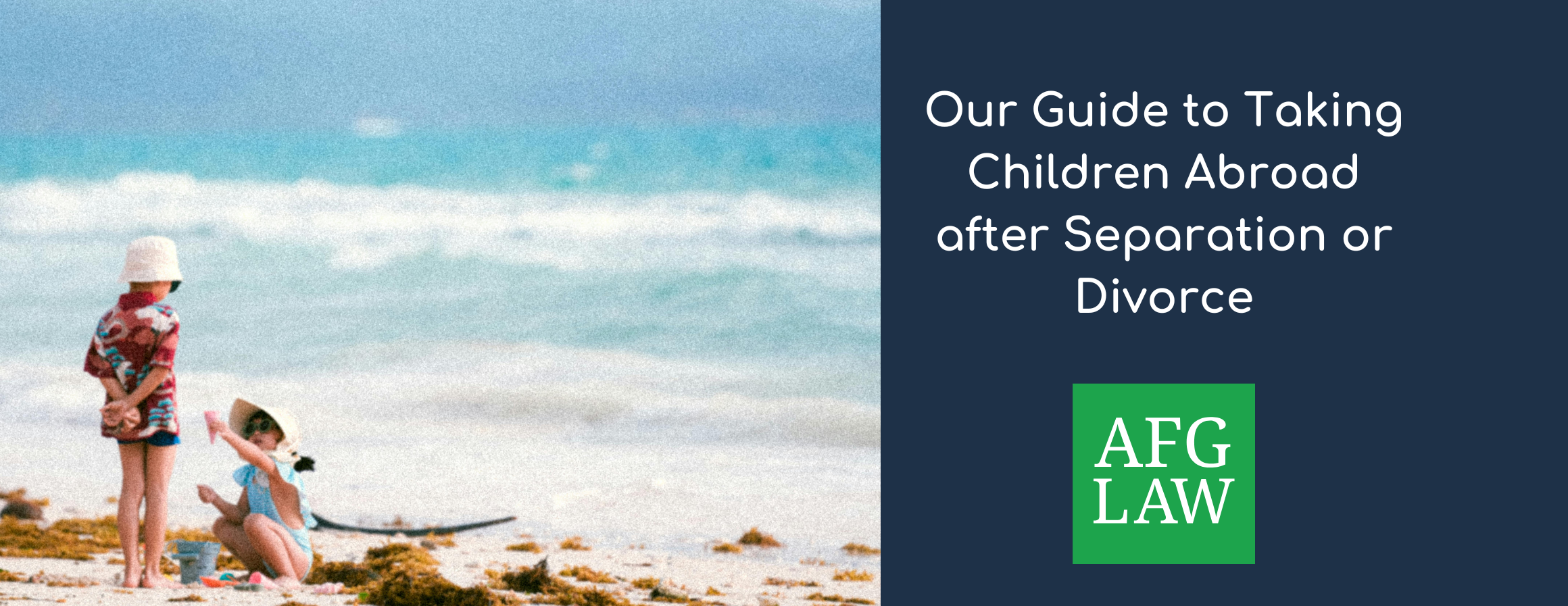More couples than ever are choosing to live together without marrying or entering into a civil partnership. Cohabiting couples may share a family home, parental responsibilities, bank accounts, and mortgage payments, and they may remain in a cohabiting relationship for many years. But when the relationship ends, many are surprised to learn that the law in England and Wales treats unmarried couples very differently from a married couple or those in a civil partnership.
At AFG LAW, our family law solicitors understand that if you have been living with a partner and the relationship has broken down, especially after a long term relationship or if you have children together, you may be left not knowing what to do next.
Our cohabitation solicitors regularly assist people who are anxious about the future, unsure of what steps to take, and uncertain about what rights they may have.
We also see many clients who believe they are protected under a “common law marriage.” Unfortunately, common law marriage is a myth in England and Wales. Unmarried couples do not acquire the same rights as those who are married or in a civil partnership, no matter how long they have lived together.
For more information on cohabitation and separation, please do not hesitate to get in touch with our family law team today.
Cohabitation and Separation under the Law
If you are cohabiting rather than married, you do not need to go through any formal legal process to bring the relationship to an end. This is very different from a divorce or civil partnership dissolution, where you must go through the courts.
However, this does not mean that separation is straightforward. Cohabiting couples often share property, finances, or children, and issues can quickly arise in relation to who should continue living in the family home, how mortgage payments should be made, and what arrangements are best for the children.
If you and your partner entered into a cohabitation agreement, sometimes called a living together agreement, when you moved in together, this may set out what should happen if you separate. Our family law solicitors can review the agreement and help you understand how it applies to your circumstances. Where no agreement exists, legal advice becomes even more important.
Property and the Family Home
One of the most common issues for unmarried couples is what happens to the family home. Unlike a married couple, where the court has wide powers to divide property fairly, the rights of cohabiting couples usually depend on whose name is on the legal title or mortgage.
- If the property is jointly owned, you will need to decide whether one partner can buy out the other’s share or whether the home should be sold.
- If the property is in one person’s sole name, the other partner may have limited rights. In some cases, they can bring a claim for a beneficial interest, particularly if they contributed to mortgage payments, renovations, or household costs with the understanding they would have a share.
Disputes of this kind are often resolved under the Trusts of Land and Appointment of Trustees Act 1996 (TOLATA). These cases can be complex and require strong evidence of financial contributions and intentions. Our dispute resolution team provides clear legal advice on property disputes and represents clients in TOLATA claims where necessary.
Financial Issues after Separation when Living Together
Unlike divorce, cohabiting couples cannot make wide-ranging financial claims against one another. There is no automatic entitlement to spousal maintenance, pension sharing, or a claim to savings or investments.
That being said, financial disagreements can, and often do still arise. Partners may have shared bank accounts, borrowed money together, or contributed unequally to household expenses. Questions often arise surrounding debts, outstanding bills, or who should cover the mortgage payments until the property is sold.
Our solicitors advise on financial claims between unmarried couples and help clients resolve disputes through negotiation or, where necessary, court action.
Cohabitation Separation Agreements
For some couples, preparing a separation agreement is the best way to record how issues will be dealt with following separation. A separation agreement can set out arrangements for the family home, division of contents, payment of debts, or ongoing financial responsibilities.
Although not legally binding in the same way as a court order, separation agreements can provide clarity, reduce disputes, and help both partners move forward. Our family law solicitors can draft or review separation agreements to ensure they reflect your intentions and are fair to both sides.
Children and Cohabitation Breakdowns
When children are involved, the law treats them the same regardless of whether their parents are married or unmarried. The welfare of the child is always the court’s main concern.
Parents need to agree upon where children will live, how much time they will spend with each parent, and how decisions about schooling and healthcare will be made.
If you cannot agree on these issues, our family law team can help negotiate arrangements or represent you in court applications for child arrangement orders.
Financially, child maintenance is usually arranged through the Child Maintenance Service, which calculates payments based on the paying parent’s income. In some cases, further claims may be made under Schedule 1 of the Children Act 1989, for example, to secure housing for the child or cover educational expenses.
Domestic Abuse and Urgent Protection
Unfortunately, some cohabiting relationships involve domestic abuse. Cohabiting partners have the same rights as married couples to seek urgent protection through the courts.
Our solicitors can advise on non-molestation orders to prevent abusive behaviour and occupation orders to regulate who can live in the family home. We treat these cases with urgency and sensitivity, ensuring the safety of you and your children comes first.
Cohabitation Agreements
Planning ahead can help avoid disputes later. A cohabitation agreement allows couples to set out their intentions about property ownership, bank accounts, mortgage payments, and financial responsibilities. It also clarifies what should happen to the family home and assets if the relationship ends.
These agreements are particularly useful for long term cohabiting couples, or where one partner is moving into a home owned by the other. Our family law solicitors draft tailored cohabitation agreements designed to protect both partners and reduce the risk of future disputes.
Dispute Resolution and the Court
Not all cohabitation disputes need to end up in court. Our family law team encourages negotiation and mediation wherever possible. These approaches can save time, reduce conflict, and focus on constructive solutions.
Where agreement cannot be reached, however, disputes may need to be resolved through formal proceedings. Property disputes are usually dealt with under TOLATA, while children’s issues are resolved under the Children Act 1989. Our solicitors provide strong representation in both, guiding clients through the process with expertise and compassion.
Legal Costs
We are transparent about costs. We can provide services on an hourly rate or, in some cases, a fixed fee basis. We always discuss likely costs at the outset so you can plan ahead.
Why Choose AFG LAW?
- Specialist family law solicitors – We have extensive experience in advising cohabiting couples across England and Wales.
- Clear, practical advice –We explain your rights and options in relation to cohabitation and separation in plain, jargon-free language.
- Full range of services – From property and financial disputes to child arrangements and separation agreements, our team covers every aspect of cohabitation breakdown.
- Compassionate support – We understand the emotional impact of separation and provide sensitive, client-focused advice.
Contact AFG Law for Advice on Cohabitation and Separation
Cohabitation offers flexibility and independence, but when a relationship ends, the law provides fewer protections for cohabiting couples than for a married couple or those married or in a civil partnership. There is no such thing as a common law marriage, and rights often depend on property ownership, financial contributions, and agreements made.
At AFG LAW, our family law solicitors help clients through these challenges with clear legal advice and practical solutions. Whether you need guidance on property disputes, financial issues, child arrangements, domestic abuse protection, or drafting cohabitation agreements, our team is here to support you.
If you are facing the breakdown of a cohabiting relationship, contact AFG LAW today. Our experienced solicitors will provide the advice you need to protect your interests and move forward with confidence.
Contact AFG Law’s family department today by calling 01204 920106 or emailing familysolicitor@afglaw.co.uk for a free initial over the phone consultation.
AFG Law have multiple offices with family law teams in Manchester, including Stockport, Bolton, Cheadle and Bury. We can also assist clients nationwide with our family law services remotely.













